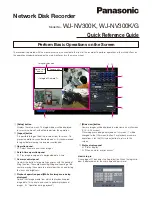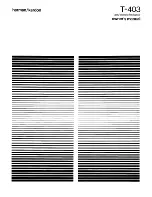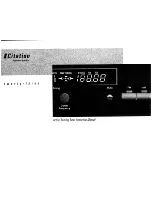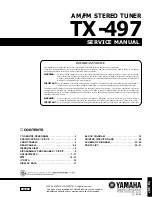
AVT 200HD Tuner • Introduction
1
Introduction
This section gives an overview of the Extron AVT 200HD ATSC and Cable TV HD Tuner and
describes its significant features. Topics include:
•
About this Guide
•
About the AVT 200HD Tuner
•
Features
•
Application Diagram
About this Guide
This guide contains information about the AVT 200HD tuner with instructions for
experienced installers on how to install, configure, and operate the equipment.
In this guide, the terms “AVT,“ “AVT 200HD,” and “tuner” are used interchangeably to
refer to the AVT 200HD tuner.
About the AVT 200HD Tuner
The AVT 200HD is a high performance tuner that receives ATSC over-the-air broadcast
signals and delivers high-definition television (HDTV) video simultaneously on HDMI
®
,
RGBHV, and YUV outputs. It outputs pulse code modulation (PCM) stereo or Dolby
®
Digital
surround (AC-3) formatted audio signals with simultaneous S/PDIF digital and analog
balanced and unbalanced stereo. The AVT 200HD also provides clear QAM (unencrypted)
cable (CATV) decoding and standard definition video outputs. Additional integrator and
user-friendly features include a multi-function on-screen display and channel presets.
Features
Some key features of the AVT 200HD are listed below:
•
Over-the-air (ATSC) and cable (CATV) channel reception
— Delivers high quality
HD video broadcasts from over-the-air ATSC, and clear QAM signals from cable. A full
range of channels are available:
•
Over-the-air channels: 2 through 69
•
Cable channels: 1 through 135
•
Simultaneous HDMI, RGBHV, and HD component video outputs
— Selectable
480i, 480p, 720p, and 1080i output rates are available.
•
Multiple control options
— Can be configured and controlled through the front
panel, an optional IR remote control, or a computer or control system that interfaces
with the AVT via RS-232, Ethernet, or the front panel USB port.
•
Multi-function n-screen display
— Provides an interface for the user with information
on the currently tuned channel, signal reception strength, and a guide that lists current
and upcoming program information.
•
Composite video and S-video outputs
— Can be used for standard definition video
display and capture or recording when the AVT is set for 480i output.








































